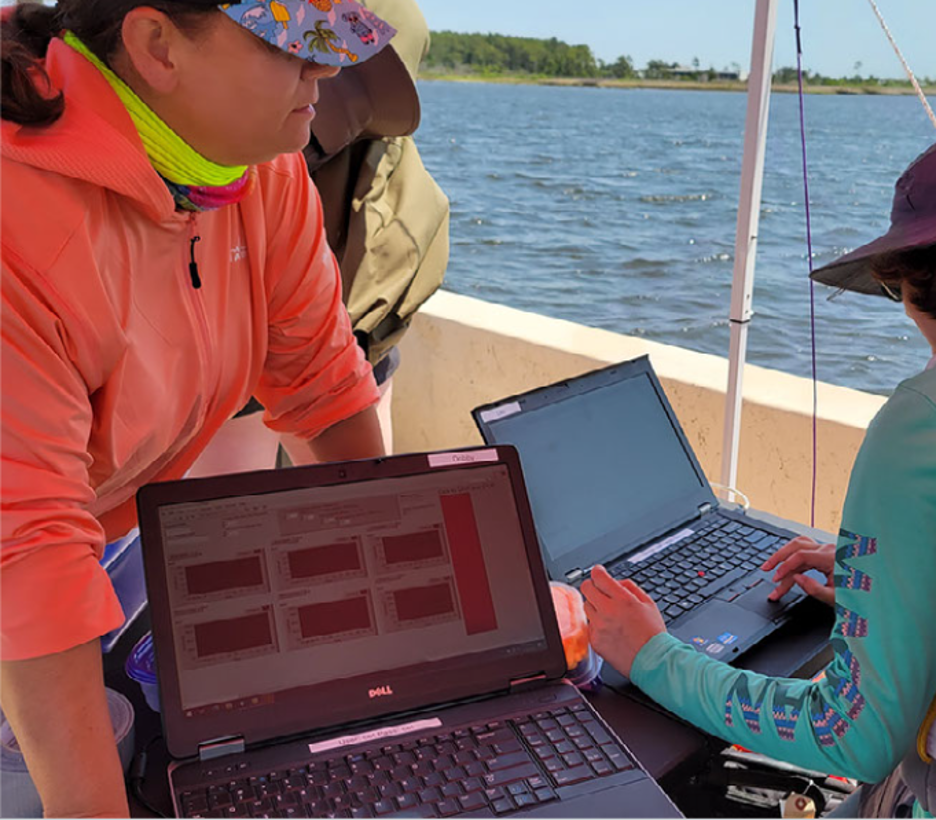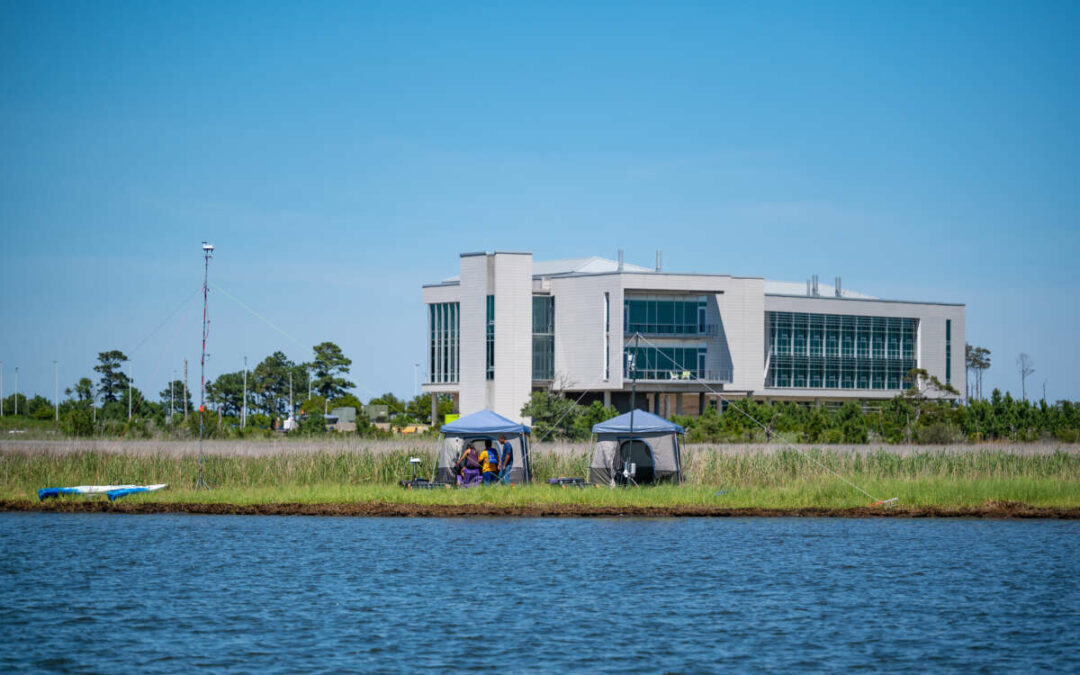What comes to mind when you hear the word bridge? Do you think of a mechanism for connecting? Engineering? Maybe even water? In this case, Dr. Teresa Ryan is the bridge. And all the above references fit somewhere into her career too.
Ryan, an associate professor in the ECU Department of Engineering, has recently made a move to the Outer Banks to be a self-described “bridge” between the ECU Outer Banks Campus and the Department of Engineering based on the main campus. Specifically, Ryan will help facilitate fieldwork and research opportunities for current undergraduate and graduate engineering students as well as students enrolling in the new MS program in Coastal and Environmental Engineering under development as a collaboration between Integrated Coastal Programs and the Department of Engineering.

Dr. Teresa Ryan
To Ryan, the move “just makes sense.” Aside from the fact that her spouse is the new ECU OBX Campus Horticulture Specialist, she and many of her students have already been making trips to the Outer Banks since 2018 as part of a research project in collaboration with Catholic University of America funded by the Office of Naval Research. Ryan’s research group has been conducting field experiments to better understand sound propagation across water.
The Navy utilizes acoustic models to help plan operations which include coastal approaches. One of the things they need to understand is how close a ship can get to shore before it is discovered via the noise it produces. Unfortunately, the models used to make such inferences are not ideal, particularly right at the shoreline. The models are simple, but sound propagation is complex and can be affected by environmental variables like temperature, humidity, and wind.
Enter Ryan and her research group. Through their field testing, they are working to provide hands-on, practical validation to improve the Navy’s models.
Not only does Ryan link the two ECU campuses and bridge the knowledge gap between acoustic models and real-world applications, but she also has a great passion for engaging students with exciting lessons and hands-on opportunities. In fact, that is what drew Ryan to ECU back in 2013.

Prior to taking her position at ECU, Ryan first worked in medical device development, but soon she felt the need for something more. She moved on to teaching high school science for several years, but she found herself missing the research side of the profession. So, she went back to graduate school to complete her Ph.D. at Catholic University of America. This eventually led Ryan to ECU and what she calls her “ideal combination” job. It is here at ECU that Ryan enjoys “a primary focus on teaching” with research still involved and loves creating “authentic research opportunities” for undergraduate students within the Department of Engineering.
“I am excited to bring my students to the Outer Banks more frequently now, and I am also looking forward to strengthening ties between Integrated Coastal Programs and the College of Engineering. With so much interdisciplinary work happening here on the coast, it is not hard to imagine many exciting new connections and collaborations in the future.”
As for the move itself, Ryan thinks the Outer Banks will be a great fit for her and her husband. They both already enjoy gardening, kayaking, and fishing. Like Ryan, the Outer Banks acts as a bridge – a connection between outstanding research opportunities and one of the most beautiful coastal environments on the East Coast. So, what’s not to love?



 Based at the Coastal Studies Institute (CSI), the North Carolina Renewable Ocean Energy Program (NCROEP) advances inter-disciplinary marine energy solutions across UNC System partner colleges of engineering at NC State University, UNC Charlotte, and NC A&T University. Click on the links below for more information.
Based at the Coastal Studies Institute (CSI), the North Carolina Renewable Ocean Energy Program (NCROEP) advances inter-disciplinary marine energy solutions across UNC System partner colleges of engineering at NC State University, UNC Charlotte, and NC A&T University. Click on the links below for more information. ECU's Integrated Coastal Programs (ECU ICP) is a leader in coastal and marine research, education, and engagement. ECU ICP includes the Coastal Studies Institute, ECU's Department of Coastal Studies, and ECU Diving and Water Safety.
ECU's Integrated Coastal Programs (ECU ICP) is a leader in coastal and marine research, education, and engagement. ECU ICP includes the Coastal Studies Institute, ECU's Department of Coastal Studies, and ECU Diving and Water Safety. The ECU Outer Banks campus is home to the Coastal Studies Institute.
The ECU Outer Banks campus is home to the Coastal Studies Institute.

